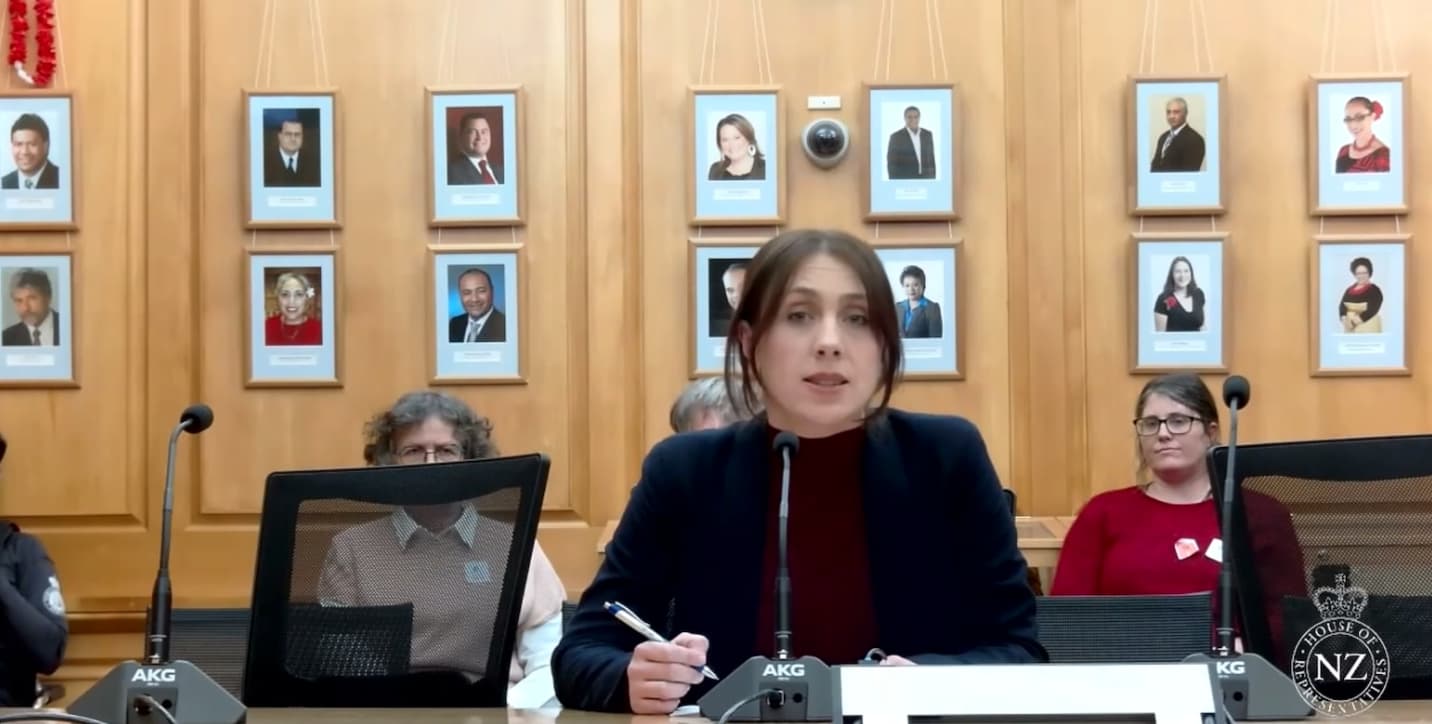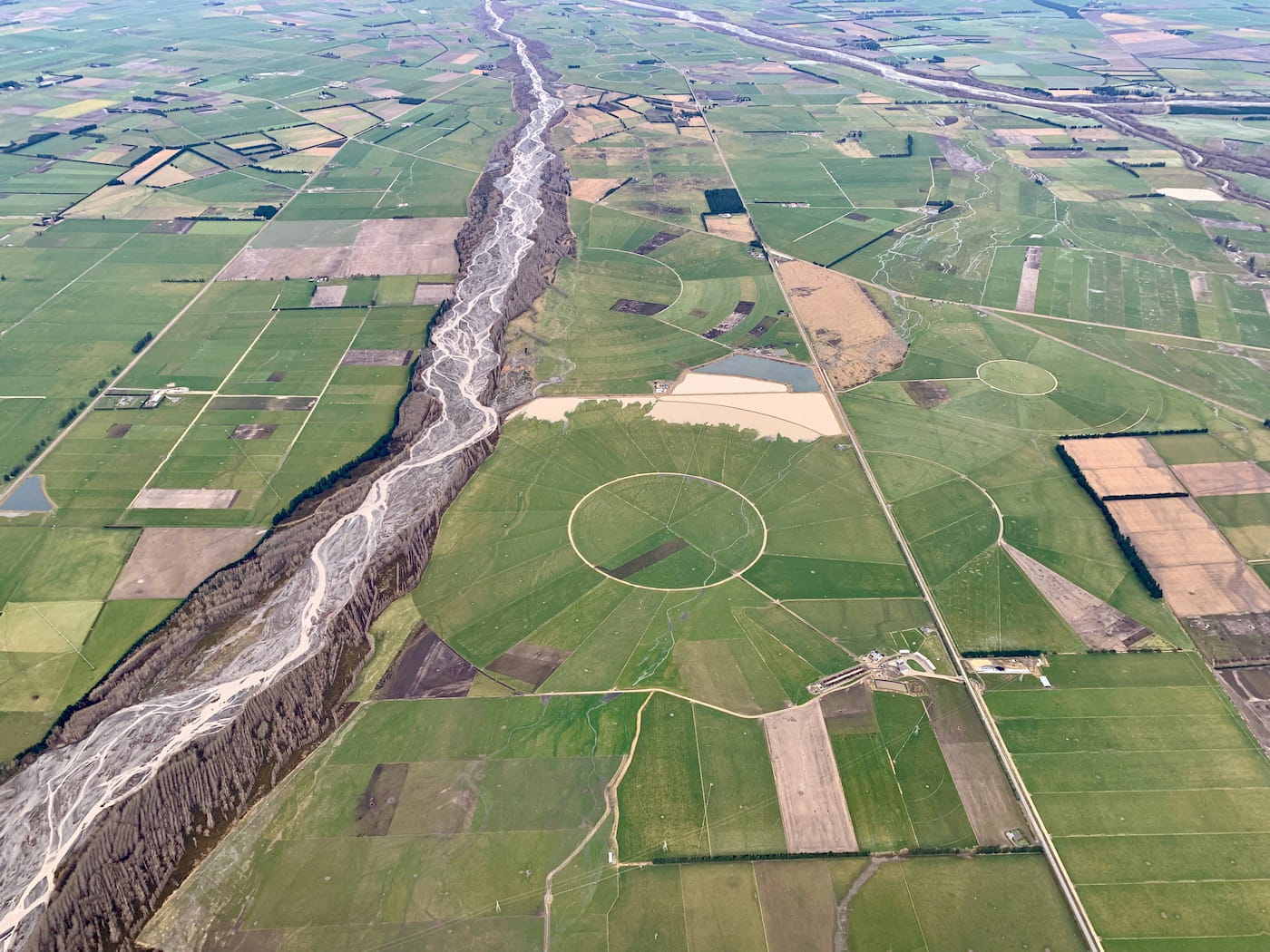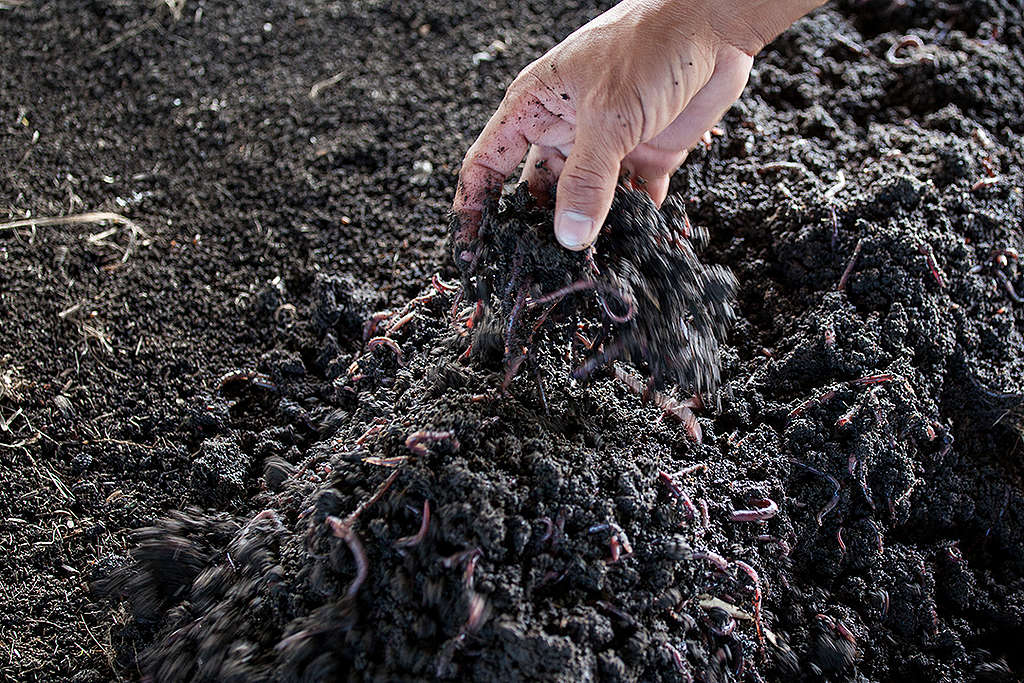
All Kiwis have an appetite for locally grown food that’s healthy and grown ethically to protect our land, water and communities from harm.
A report released by Greenpeace and The Rubbish Trip shows expanding New Zealand’s organic waste collection infrastructure and composting could be the solution we need to eliminate the need for harmful chemicals in our food growing soils.
Synthetic nitrogen fertilisers used in intensive dairying cause long term damage to productive land and poison our waterways but currently farmers nationwide have few options to eradicate its use and transition to cleaner solutions.
The report titled Expanding Organic Waste Collections and Composting explains how Aotearoa can collectively help farmers grow good food that doesn’t harm the land, river or climate by replacing toxic chemical fertilisers with existing food waste we all create on a daily basis.
Many farmers across the country want to do the right thing, and are moving away from intensive dairying towards regenerative and organic methods.
By converting everyday household waste into good quality compost we can provide farmers with an alternative to enrich the soil they need to grow great food.
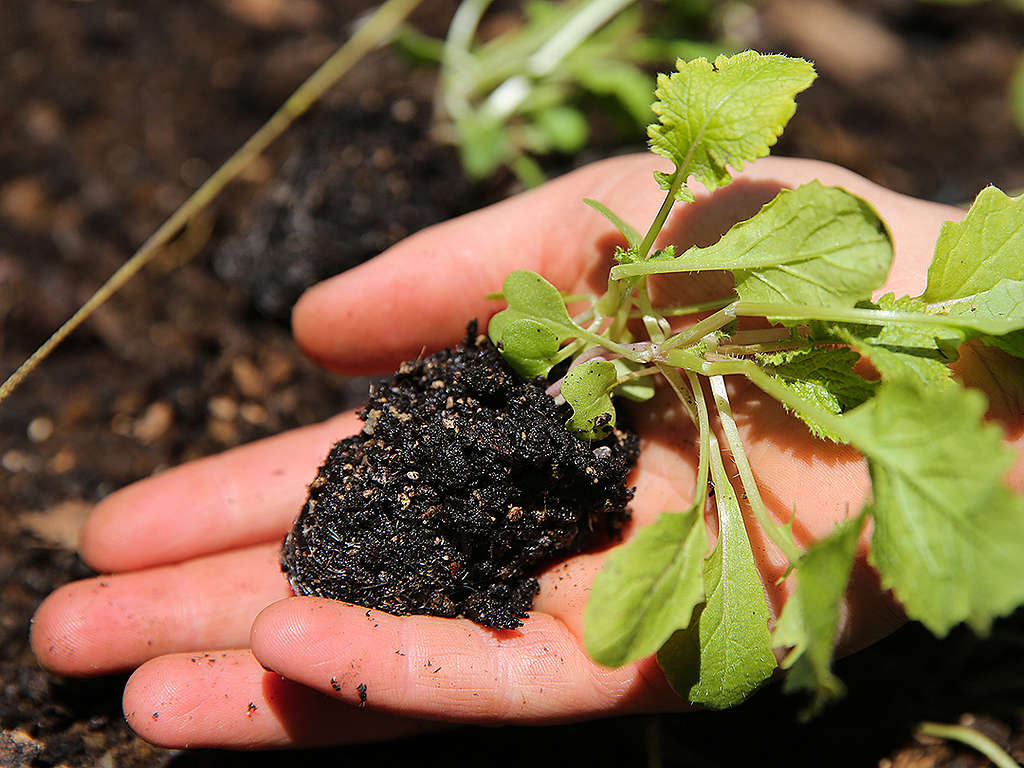
The report recommends a network of small and medium-scale composting sites, where organic waste is composted as locally as possible. The potential for positive social and environmental outcomes is huge: from developing local green jobs, providing opportunities to grow urban farms and local food resilience, to creating high-quality compost that restores soil health and locks away carbon.
“Capturing and utilising organic waste is one vital way to reduce emissions and pollution, and move towards a zero waste, circular economy,” says Liam Prince, co-founder of zero waste organisation The Rubbish Trip and author of the report.
Key recommendations from the report:
- Various methods and scales of organics collection and processing infrastructure can and should work in tandem.
- A comprehensive organic waste strategy is needed at both central and local government.
- A rigorous and detailed cross-sectoral organics hierarchy must be developed and integrated into organics policy and strategy to inform procurement and decision-making.
- Mandatory separate collection and/or on-site processing of organic waste followed by an eventual ban on landfilling organics.
- Robust and clear provisions for organics infrastructure in resource management regulations.
- Ambitious waste minimisation targets for reuse, recycling and resource recovery.
- Ongoing increases to the Waste Disposal Levy.
To read the full detail of the ‘Expanding Organic Waste Collections and Composting’ report head HERE
We want Government support to help Aotearoa farmers move away from harmful inputs like synthetic nitrogen fertiliser and progress to regenerative organic farming.
Sign our petition today to support a wholesome shift in Aotearoa food production.
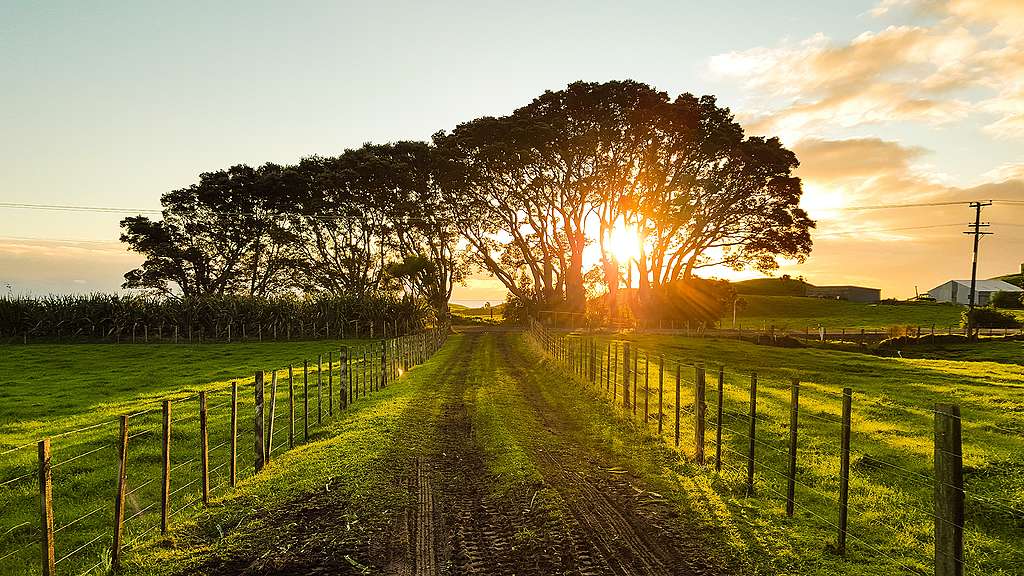
Call on Christopher Luxon to set up a billion dollar fund to transition New Zealand away from industrial to regenerative agriculture.
Take Action
